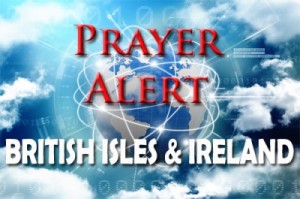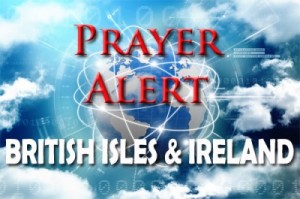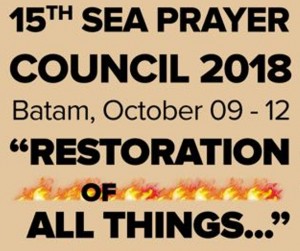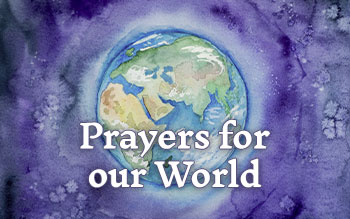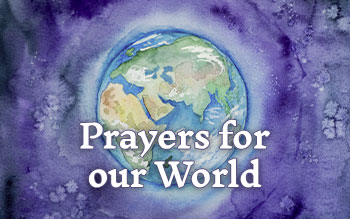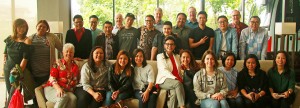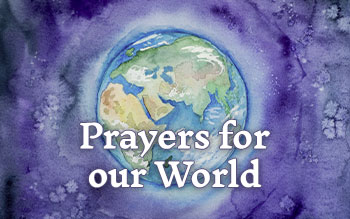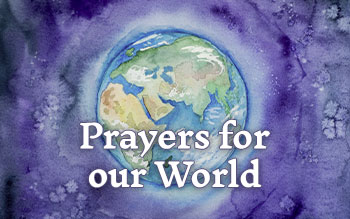
Super User
Lorem ipsum dolor sit amet, consectetur adipisicing elit, sed do eiusmod tempor incididunt ut labore et dolore magna aliqua. Ut enim ad minim veniam, quis nostrud exercitation ullamco laboris nisi ut aliquip ex ea commodo consequat. Duis aute irure dolor in reprehenderit in voluptate velit esse cillum dolore eu fugiat nulla pariatur
Europe’s march towards a post-Christian society has been starkly illustrated by research showing that a majority of young people in a dozen countries are not following any religion. A survey of 16- to 29 year-olds found that in the UK only 7% identify as Anglican and 10% as Catholic. Young Muslims, at 6% and rising, are on the brink of overtaking those who consider themselves part of the country’s established church. The UK figures were partly explained by high immigration - one in five Catholics in the UK was not born in the UK, neither were most of the Muslims. The figures were in a report, Europe’s Young Adults and Religion, by a professor of theology who said, ‘The new default setting for faith in the UK is no religion, and the few who are Christians see themselves as swimming against the tide.’
In the current climate of Russian conspiracy theories, press conference threats, diplomatic expulsions from countries, with tit for tat accusations and sarcasm between countries, it is difficult to know how to pray or who to pray for, when there are so many people behind the scenes holding very influential positions both at home and abroad. With this in mind, Prayer-Alert has produced an INSIGHT article giving intercessors a backstory that contains the historical roots of corruption in Russia, the names and spheres of authority of administrative individuals in Russia, and Government agencies in the United Kingdom that we can be praying for, with information based on facts not fake news. To read the article please press the ‘More’ button.
It has been confirmed that 81-year-old Pope Francis will visit Dublin on Saturday 25 August to take part in the Festival of Families, a faith-based cultural concert in Croke Park, and celebrate Mass in Phoenix Park the following day. Bearing in mind the current contemporary challenges that face families in both Ireland and elsewhere, the Catholic bishops said, ‘We are deeply honoured that Pope Francis will come to our country to participate in this universal church celebration of faith and joy’, adding that they look forward to hearing apostolic guidance.
According to an ongoing headcount, 100 of the school girls abducted by militants from their boarding school in Dapchi on 19 February were ‘dropped off’ at about 7:30 am on 21 March. Their release was unconditional. ‘Dapchi is full of joy,’ said Mohammed Mdada. He said the militants apologised to some of the girls’ parents in their language, Kanuri, and shook their hands before driving off. They said that if they had known the girls were Muslim they wouldn’t have abducted them. Some reports say that Christian girls had not been released. Amnesty International said four girls are still missing. The terrorists warned the girls to stay away from school, adding that if they returned and found any girls in school they’d abduct them again and never give them back. Although parents are rejoicing, it can be seen that the girls have suffered and are in a poor state.
SEAPC is a United Prayer Initiative for the Healing of the SEA nations in order to affect the 7 spheres to bring forth the Testimony of the Kingdom causing an “Awakening” to those who listen to His voice as they serve in their gifting in the different Spheres such as the Church, Family, Education, Government, Media, Arts and Business.
When God’s People are United, Power is released.
The theme of the 15th SEA Prayer Council to be held on 9-12 October 2018 in Batam, Indonesia is 'RESTORATION of All THINGS'.
Speakers will include the co-founders of SuccatHalel, Jerusalem, Pastor Rick & Patty Ridings. They are respected leaders in the global prayer and worship movement. Rick has presented on God TV and spoken at conferences in 40 nations.
Also speaking will be Pastor DjohanHandojo, Senior Pastor of Bethany Church Singapore, GBI City Tower Jakarta and GBI GatotSubroto's field mission and apostolic ministry of foreign affairs. He is also the co-ordinator of the Eastern Gate Prayer Convocation, a prayer movement for 40 countries located in Asia.
Batam's Key Role:
For Zion's sake I will not keep silent.
For Jerusalem's sake I will not remain quiet
Isaiah 64: 1-4
To serve.... take a stand in God's prophetic plan...
In a world where feelings and opinions are held in higher esteem than the truth, it is easy to get lost in the midst of false prophecies and confusion. The infallible Word of God is the only source of reliable truth to help us navigate these tumultuous days.
Are we ready to connect with God's divine opportunity to make an impact in the different cultures and the spheres of influence so that the fire and the power of the Holy Spirit is manifest as we speak?
Continuing our journey from strength to strength, from glory to glory from last year's SEA Prayer Council in Subic, Philippines, 'Roadmap to Divine Destiny - Christlikeness' to Batam SEA Prayer Council 2018 'Whom heaven must receive until the times of restoration of all things, which God has spoken since the world began. Acts 3:21
Come prepared for an appointment to listen and to value God's voice.
As we gather and unite in the power of the Holy Spirit let us eagerly anticipate and welcome The Glory of His Presence in Batam!
More information and to book:
http://www.seaprayercouncil.faith/107seapc/index.php
Adeline Teh - Email: This email address is being protected from spambots. You need JavaScript enabled to view it.
David Yong Cheng - Tel: +62 813 8212 3337
Blessings UPRISING family,
We haven’t stop seeing a divine intervention in the country of Bolivia after UPRISING.
Certainly heaven and earth are crying out for manifestation of the sons of God. A powerful prayer movement of unity among the body of Christ and the people have started in Bolivia!
Important events this month (UPRISING Bolivia Prayer Network):
- Feb 4 : March for Jesus in Santa Cruz the churches united to pray and worship God.
- Feb 4-8 The main river of Cochabamba overflows and floods the Tiquipaya sector destroying almost the entire area.
- The overflow of other rivers affect other sectors of Cochabamba, such as Quillacollo
- Feb 9 : The church of Cochabamba is ONE in supporting the victims of the floods. Before UPRISING it was very difficult to see the churches working together serving the community. Even The Red Cross of Bolivia made a public recognition to pastors in regards this matter.
- Feb 12 : It begins another wave of Prayer & fasting convocations in various churches, in plazas and in several cities of Bolivia.
- Feb 21 : Across our beloved Bolivia women, men and children haven’t stop praying and taking to the streets to defend our faith and democracy. February 21st 2016 commemorates when a majority of the population voted NO to the re-election of Evo Morales who is still attempting to become president indefinitely by all means possible: bribery, propaganda and brute force, using the resources of the state to do so.
Bolivia went into a National civil strike today.The church and people of Bolivia say NO and will continue to say NO to his leftist regime. We say YES to JESUS! Bolivia will NOT be Venezuela.Bolivia will NOT follow the path of Cuba.
- Today, for the first time we see the unity of the Body of Christ reflected in the unity of the Bolivians.
Prayer requests:
Please pray that the will of God over our nation is revealed.
Pray that all violence, revenge, lies, deaths, injustices in every political and social spheres, covenants to the occult, and pacts with nations that can misuse our resources to their benefit, but to our economic detriment, are all uncovered.
Please pray that the People of God in our nation do not get weary, and continue the intercession in love and self-sacrifice.
Pray that all the natural disasters occurring through floods and devastation will continue to be an opportunity for the Bolivian Church to bring the Gospel of love, restoration and salvation in the Lord Jesus. Muchasgracias !
Peace,
Judith Yanira González
Executive Team
International Prayer Council
California is almost like a country of its own due to its large size, population, and economy. It is also perhaps the most powerful trend-setter for the rest of the USA and the world as the home of Hollywood.
Some prayer leaders in California are asking us to pray about some key upcoming efforts there.
- Awaken California!
Coming out of Awaken the Dawn, the 50-state prayer and worship effort at the Washington DC Mall last year, the core ATD team leaders are envisioning Awaken California. A local prayer leader writes: “We have an invitation-only gathering of 20-30 ATD California worship teams gathering February 23-25 to become family and move toward Awaken California.
The following week we will we will be traveling with David Hershey (David’s Tent) and Pia Jo (National Mobilizer for ATD) to tour California (beginning in Sacramento on Feb. 25 and ending in San Diego on March 2) to cast vision for Awaken California and Tent America 2018 (a prayer effort for all 50 state capitals to have 24/7 prayer and worship tents at the end of September).
Here are a few prayer requests:
1) God is building true family and relationship across California under Christ's headship. Pray for humility and alignment as we connect with one another.
2) We are commanded to love one another as He has loved us in John 13:34. Pray that we would truly begin to walk this out. That we would learn to value one another, to prefer one another, to show up and support one another. That our actions would speak louder than our words.
3) Pray for favor as we encourage Latino, Chinese, and African American leaders across our state.
4) Pray for provision, protection for our trip.
5) Pray that Jason Hershey from David’s Tent and Pia Jo Reynolds from Awaken the Dawn would feel honored and valued during their time in California.
- Welcome the King of Glory into California!
This will be another key effort for California next month, Friday, March 23- 24, 2018. It will be a Holy Convocation to WELCOME the KING of GLORY into CALIFORNIA. The organizers write: “God is moving powerfully in our nation…manifesting His intention to bring us back to the very foundations upon which He brought us forth 242 years ago! We who are His…are moving with Him…cheering Him on as He engages in a wondrous WARFARE OF LOVE for the United States!
On behalf of the people of our nation, as representatives of the Ekklesia, the 24/7 National Strategic Prayer Call is hosting a Holy Convocation to WELCOME the KING of GLORY into CALIFORNIA on March 23rd- 24th at the ROCK Church in Anaheim, CA.”
For more information about attending, please see the event website:
https://www.facebook.com/WTGOGCA/?ref=settings
Please pray for His strong anointing, for wonderful unity in the Spirit, and for significant breakthroughs for this pivotal state to come out of both of these united prayer initiatives. It will bring blessing to our world from this powerful, trend-setting state!
Thanks to those of you who were able to cover the Global Uprising (United Prayer Rising- World Youth Prayer Assembly) when the international team met with the Indonesians last month.
It was an anointed, valuable, productive gathering that brought us to consensus about calling on-fire youth and others in the prayer movement who would like to take part to Jakarta, October 17-20, 2018.
The team is projecting that up to 4000 will take part and is currently looking to finalize a good venue for the assembly in that city. The theme will be “Receiving the Moravian Lampstand: PRAYER + MISSIONS”.
How exciting that youth from around the world will be together to hear His call into their unique missions in life!
What could be more strategic for His Kingdom and our world?
Would you please keep the planning team for the Global Uprising in your prayers over the coming months and also encourage youth and others you think should consider coming to go to the Uprising website to find out more about this magnificent gathering: www.unitedprayerrising.com.
View the United Prayer Rising Vision video presented by Pastor Jerome Ocampo: https://www.youtube.com/watch?v=Fb89ot9n5_U&feature=youtu.be

Whole villages were flattened and water sources spoiled by a powerful earthquake on February 26th that killed at least 20 people, residents said on Wednesday as rescuers struggled to reach the hardest-hit areas in Papua New Guinea’s remote, mountainous highlands.
The magnitude 7.5 quake rocked the rugged Southern Highlands province some 560 km (350 miles) northwest of the capital, Port Moresby, triggering landslides, damaging mining, gas and power infrastructure, and cutting communications.
Most of the confirmed fatalities were in or around the provincial capital of Mendi, where television pictures showed collapsed buildings and landslides, and the town of Tari, according to authorities and residents contacted by Reuters.
Pray for those affected by the quake and especially the bereaved.
Pray for the relief efforts and for the authorities as they approach rebuilding the villages and infrastructure.
Lesotho’s Redemptive Purpose is that 'It is the Lighthouse of the Region', this naturally links us with South Africa because we are land locked within her but let me focus on Lesotho for now.
Prophetically, the LORD is mightily at work in Lesotho. Spirit of Prayer is intensifying.
The LORD is already giving specific assignments and I am presently involved in one, we are a team of 12.
Through this team the LORD is addressing specific arears/issues.
Our immediate prayer needs include:
- Need to be in unity under guidance of the Holy Spirit whenever we are together on the assignment.
- Need to be totally yielded to God"s leading in terms of time and where to be and what to do.
- Lesotho as a Nation including our leaders to hear and return to God and His ways.
- The Church to be about God's Kingdom business not own agenda.
From NthuntsiBorotho, a local prayer leader
View the PrayerCastPrayer Video on Lesotho: http://www.prayercast.com/lesotho.html
Use the Operation World online prayer resource: http://www.operationworld.org/leso
